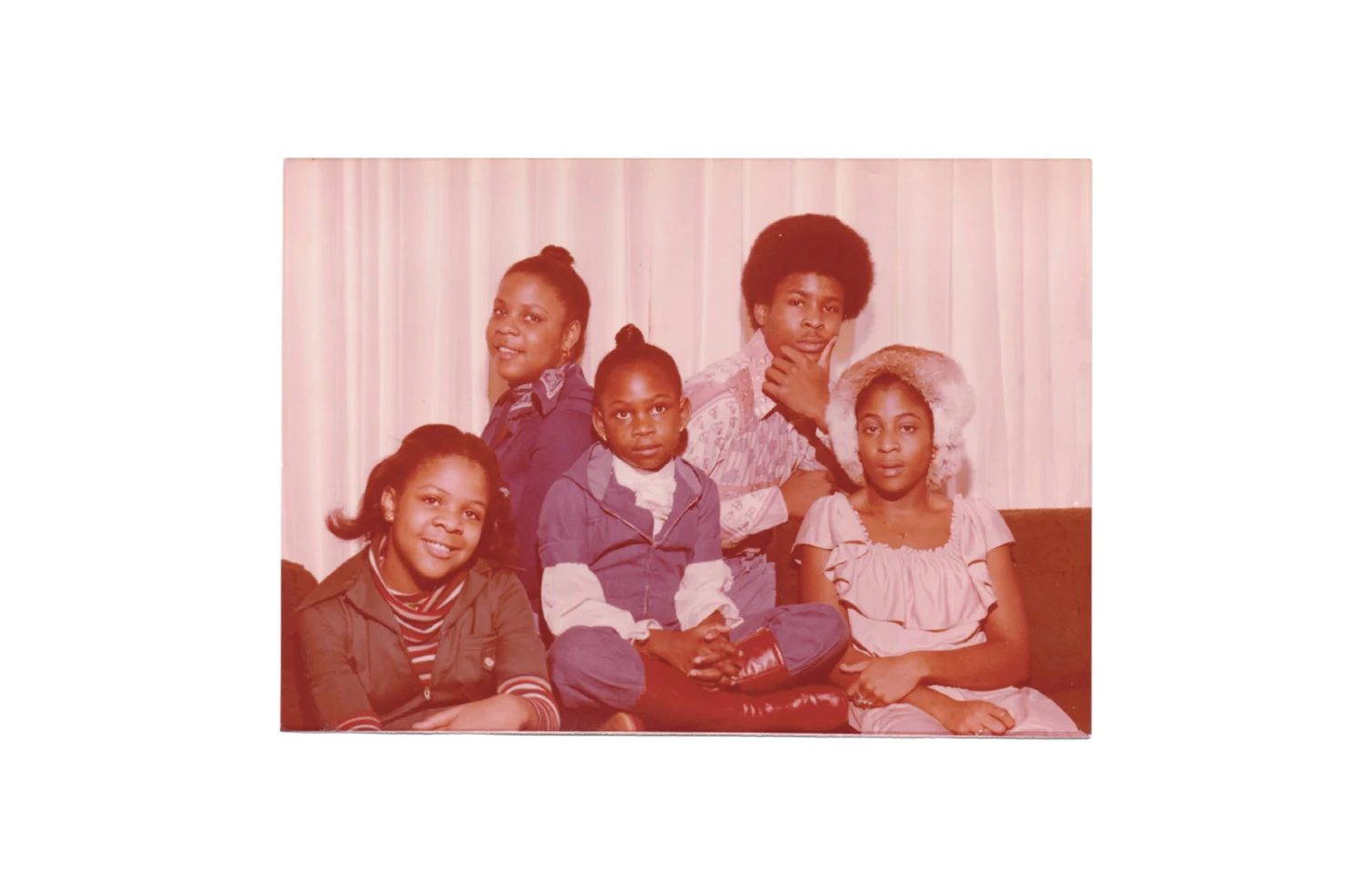thug life
Trevor Noah: This is always a tough question that gets thrown—I mean I’m a huge hip-hop fan. But you get people who say, “I hear you guys say you want justice. I hear—oh hip hop stars and fans saying that this is not right—but then in hip hop people are talking about guns… people are talking about shooting… people are saying things like f*@# the police… How is this helping the dialogue? As a hip-hop artist, how do you reply to that?
T.I.: Well, first of all, I think that people need to take into consideration that hip hop traditionally has always been a reflection of the environment the artist had to endure until he made it to where he was. So, if you want to change the content of the music, change the environment of the artists and he won’t have such negative things to say.”
Trevor Noah Interviewing Guest, Hip-Hop artist, T.I. on The Daily Show with Trevor Noah
A STORY
One Saturday afternoon, my sisters and I entertained ourselves by watching my nieces and nephews play. This was one of our favorite pastimes. We loved to pretend that we were being adults who were distracted with our coffee and chatting, when in fact, we were really eavesdropping on the kids' playtime. On this particular day, my nieces Tiffanie, Nada and Nicole, had coerced my nephew Jason to play house with them. None of them were older than five. Needless to say, the girls were completely running the show. Or, so they thought.
The girls set the scene for play by defining the roles that each would have, and by handing out props and costumes. The girls quickly decided that the role that each of them would play would be that of a successful, working, educated black woman. Each had it all—a fabulous job, babies, and a husband. The girls then asked Jason what role would he play. Who did he want to be? Jason shrugged and again plead his case that he would rather ride bikes and Big Wheels outside. His vote didn’t even register with the girls who quickly assigned a role to him: “You can be the dad and stay home and watch all our babies. You can babysit.”
My sisters and I eventually stopped paying attention as they decided which baby doll was whose, and who would get to wear the one pair of plastic dress-up play pumps. About five or so minutes later, our nieces came to us firing complaints that Jason wasn’t playing nicely. We basically told them to work it out and went back to our coffee and adult conversation. But five minutes later, the girls returned to us teary-eyed. Once again, they complained that Jason wasn’t playing nicely. Before hearing more and passing judgment upon the situation, my oldest sister sent the girls back to play. But, unbeknownst to them, we were listening this time. This is what we heard:
One of the girls to Jason: You have to go to the store and get some milk for the baby.
Jason: B*t@#! I ain’t gotta do nothing. I ain’t got no m*ther f*@#ing money any way.
Jason, our sweet, beautiful, five-year-old nephew was playing house. But he was playing house as he knew “house” to be. Unlike everyone else that day who had been raised in a middle-class, white, suburban neighborhood, Jason was from the hood, the projects of Cleveland, Ohio, and the son of my crack-addicted brother and his crack-addicted girlfriend. His environment informed the way he played house.
I recently read an article called “A Potential Censorship or Criminalization of Rap Music,” by Charis E. Kubrin for The New York Times. The article was an op-ed piece that Kubrin had written about Anthony Elonis' Supreme Court appeals case. He was appealing his indictment on five counts of interstate communication of illegal threats that he claimed were rap lyrics that he had posted on Facebook. Throughout the article, Kubrin’s opinion was a pretty tame one for a New York Times piece: not a passionate plea for freedom of speech or a call to arms to protect against censorship. However, readers' responses were less than tame and not really about Elonis’ case at all. Most reader comments were a barrage of criticisms against the idea of rap music, particularly gangsta rap, as an art form. Kubrin ended her article with, “The burden of increased monitoring, restrictions or criminality would be disproportionately borne by young black and Latino men, who are the most significant group creating and producing rap.” Suddenly, a case about a white man, Anthony Elonis, was now a case about race to the eyes of those who commented on the article.
Here’s just one reader’s comment: Gee, god forbid that anyone should interfere with the "artistic expression" of violent, misogynistic, racist thugs.
I won’t begin to pretend that I have any real knowledge of a gangsta or a thug life. My sisters and I couldn’t even relate to our 5 year-old nephew’s interpretation of playing house. I’ve lived the majority of my days and hours in stable communities and institutions. I’ve never lived in a prison, a mental ward, a children’s home, a homeless/women’s shelter or a government housing facility. However, I do have many loved ones who are well acquainted with those spaces and have called them home. If any of them were to write a rhyme about their experience, who would I be to call it violent, misogynistic and racist? The day my nephew played house, we caught only a sliver of a glimpse of his reality. Not one of us would call that precious little preschooler a violent, misogynistic, racist thug. And, we’d dare anyone else to try. Instead, that day, we realized a deeper love, a real compassion and, of course, concern for him and his life.
There's a chalkboard hanging on a wall in my dining room with a quote by controversial and legendary rapper, Tupac Shakur, that reads: Let the Lord judge the criminals. For me, it’s like a psalm. I don't think Shakur is saying that criminals deserve no judgment or punishment. I think what he’s saying is that the only one fit to truly judge the criminals is the Lord who is Sovereign, omnipotent and omniscient—but also Father, gracious and merciful.
Tupac’s quote challenges me and reminds me that David, a vicious, fearsome, adulterous, murderous warrior King, was also called a man after God’s own heart. Were the prayers David wrote pleading with God to give him strength to slaughter his enemies a kind of biblical thug life? Since the victory was over his oppressors, are we more accepting of 1 Samuel 18:7, “Saul has killed a thousand enemies; David has killed ten thousand!”? If that is so, can we be more accepting of gangsta rap verses like this one by N.W.A.:
… a young n*@#a on the warpath/And when I’m finished, it’s gonna be a/bloodbath/of cops, dying in L.A./Yo, Dre, I got something to say/F*#@ tha police!
Is this a battle cry, artistic expression, or a threat against society? And, who of us is sovereign and merciful enough to judge? Who's willing to throw the first stone?
CONTEMPLATION
Instead of reading Psalm 109 as David’s call for God to brutally kill his enemies and maniacally rain wrath upon their families, including their children, let’s read it from the point of view of a gangsta rapper calling on God to brutally punish those who perpetuate systemic racism:
PSALM 109
I praise you, God! Don’t keep silent. Destructive and deceitful lies are told about me, and hateful things are said for no reason. I had pity and prayed for my enemies, but their words to me were harsh and cruel. For being friendly and kind, they paid me back with meanness and hatred.
My enemies said: “Find some worthless fools to accuse him of a crime. Try him and find him guilty! Consider his prayers a lie. Cut his life short and let someone else have his job. Make orphans of his children and a widow of his wife. Make his children beg for food and live in the slums. Let the people he owes take everything he owns. Give it all to strangers. Don’t let anyone be kind to him or have pity on the children he leaves behind. Bring an end to his family, and from now on let him be a forgotten man. Don’t let the Lord forgive the sins of his parents and his ancestors. Don’t let the Lord forget the sins of his family, or let anyone remember his family ever lived. He was so cruel to the poor, homeless, and discouraged that they died young. He cursed others. Now place a curse on him! He never wished others well. Wish only trouble for him! He cursed others more often than he dressed himself. Let his curses surround him, just like a belt and clothes he wears each day.”
Those are the cruel things my enemies wish for me. Let it all happen to them! Be true to your name, Lord God! Show your great kindness and rescue me.
I am poor and helpless and I have lost all hope. I am fading away like an evening shadow. I am tossed aside like a crawling insect. I have gone without eating, until my knees are weak, and my body is bony. When my enemies see me, they say cruel things and shake their heads.
Please help me, Lord God! Come and save me because of your love. Let others know that you alone have saved me. I don’t care if they curse me, as long as you bless me. You will make enemies fail when they attack, and you will make me glad to be your servant. You will cover them in shame, just as their bodies are covered with clothes.
I will sing your praises and thank you, Lord, when your people meet. You help everyone in need and you save them from death.
MORE
Black Churches Are Urged to Denounce Gangsta Rap by K. Connie Kang, L.A. Times
The Urban League on the State of the Black Church, thefrontporch.org
Surviving on the Inside by Ice T, TEDxSingSing










